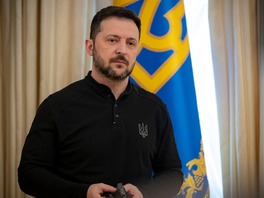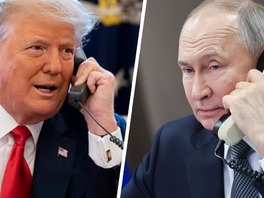On Tuesday, October 1st, Ukraine agreed on the so-called Steinmeier formula for resolving the conflict in Donbas. The foreign policy expert of the International Centre for Policy Studies Mykola Kapitonenko explained if it's the victory or a diplomatic failure.
Over the past month, long conversations and rumors about the "Steinmeier's formula" played an evil joke: the formula turned into a symbol. As former German Foreign Minister's initiative, supported by Russia, could not have become a symbol of victory, it turned into a symbol of defeat. For those who see any deviation from the current state of affairs as an unacceptable betrayal, however, there can be no successful settlement of the conflict at all.
Meanwhile, Steinmeier's "formula" is only one of the steps for conflict resolution - and not the most important one. It serves as a technical trick, which the Russians insisted on mainly due to the resonance of this issue within Ukraine. The formula has turned into a good measuring device that illustrates how seriously President Volodymyr Zelensky takes further diplomatic steps, as well as how strong are the positions of those opposing the conflict's settlement.
The formula evolved into a symbol both for Ukraine, Germany and France - a symbol that signifies Ukraine's willingness to change the current state of affairs. Our international partners realize the task is very challenging. Russia's aggression, distrust to guarantees and years of violence all negatively affect any potential steps forward. Berlin and Paris are ready to compensate for the risks, yet only partially. In any development of the situation, Ukraine will not be able to avoid making difficult choices.
The "Steinmeier formula" agreement is definitely not the most dramatic one of these choices. As was already said, the formula only involves the following sequence : "the temporary operation of a law on special status - elections - recognition of the results of the OSCE - permanent operation of the law". There are other, more important sequences - such as the withdrawal of Russian troops and the scope and mechanisms of autonomy - that are yet to be discussed.
Ukraine is yet to face some of the more challenging dilemmas. There will be a price to pay for any of the three possible scenarios. Whether Ukraine decides to leave the conflict as it is, freeze it or solve it completely, none of these options will prove simple and painless. A lot will depend on the Parliament's ability to prepare a new bill, which will in turn unveil the decision's true price.
The beginning of the conflict resolution process often proves to be the most difficult stage. Moscow has made a written agreement to the Steinmeier formula a condition for holding a summit in the Normandy format. We need this summit to attract the negotiating resources of Germany and France to solve the difficult task of disengaging troops and establishing a stable truce. If such a truce is not achieved, there will also be no further progress in the settlement of the conflict, including in terms of the elections - with or without the Steinmeier formula.
We must realize that tactical bickering over formulas signifies deeper political issues: the scope of autonomy, amnesty, and a common vision of relations with Russia. Without the solutions, the formula will lose its meaning for both us and Moscow. We will not be able to get the Russians around the fingertips by writing successful formulations or by catching them at the word: the strength of their negotiating position lies with their great advantage in controlling escalation. The Kremlin, however, will not be able to force us into accepting conditions that are more difficult than we are ready to accept. And even more so, the intermediary states will not be able to do so.





